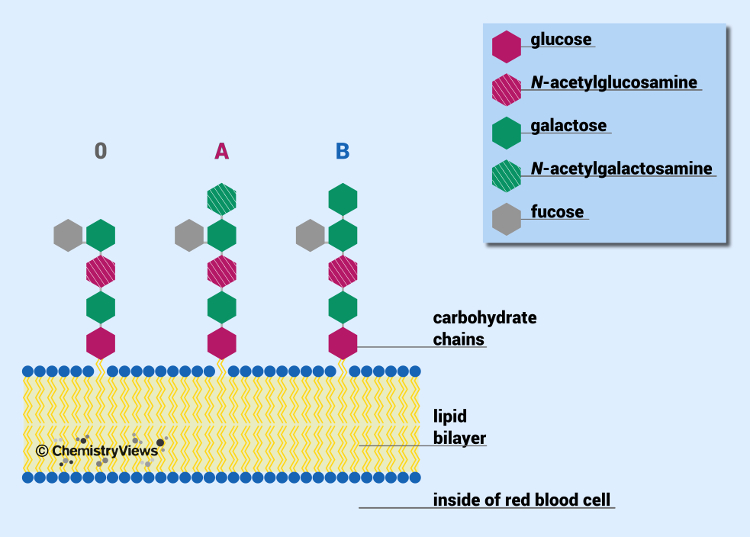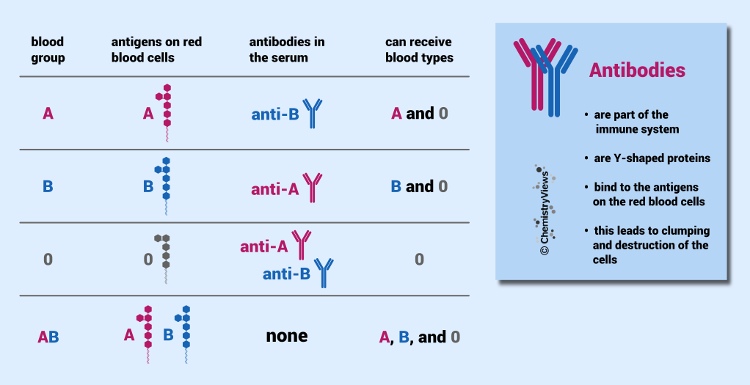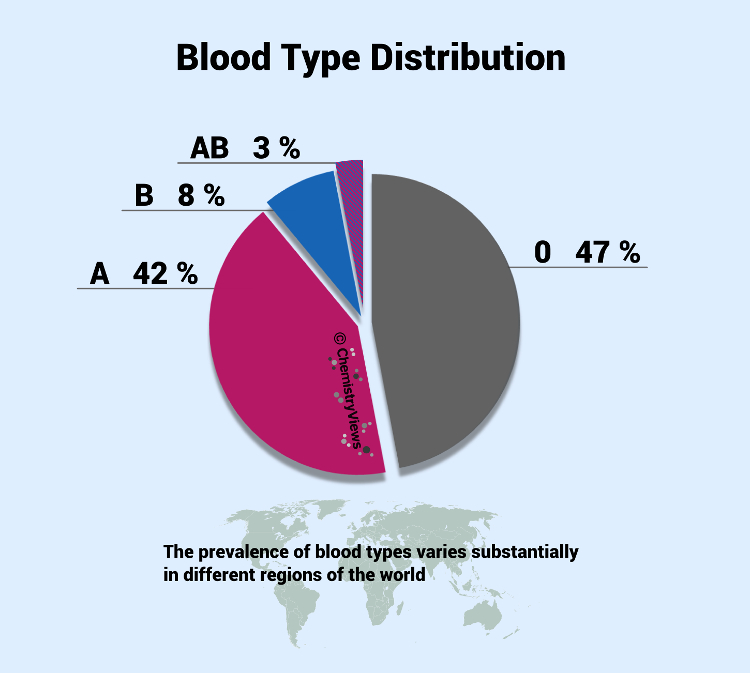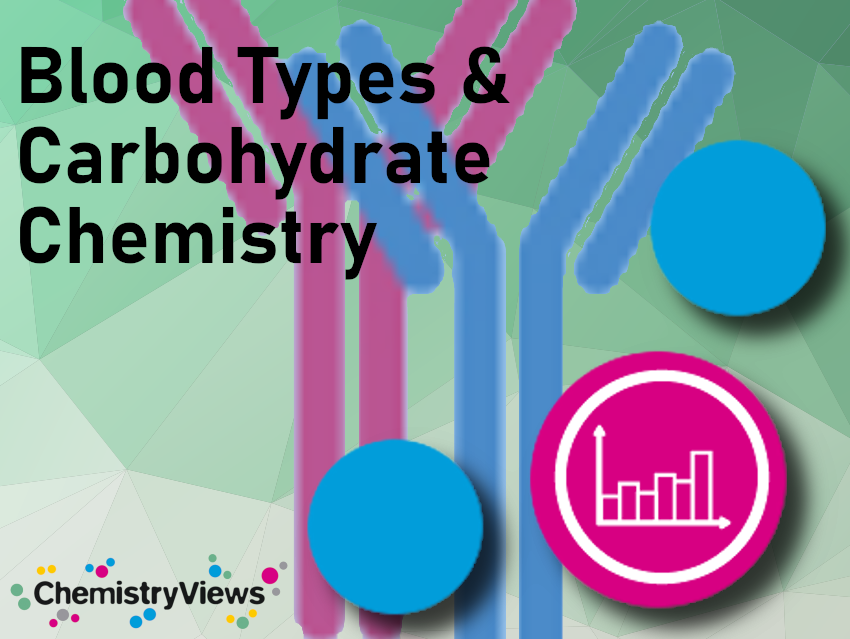While blood types might be considered a biology or medicine topic, carbohydrate chemistry is of great importance for the most commonly considered blood classification, the AB0 blood types. The blood types are named after antigens that are found on the surface of the red blood cells, and these antigens are simple chains of sugars.
Carbohydrate Antigens on the Surface of Red Blood Cells
The types of oligosaccharides present on the surface of the red blood cells determine a person’s blood type: if only the 0-type antigen is present, the blood type is 0, if only the antigen A or B is found, the blood is type A or B, respectively, and if both A and B antigens are present, the blood type is AB [1]. The A and B antigens differ only in a sidechain on the terminal sugar.

Compatible Blood Types for Transfusions
In addition to the antigens on the red blood cells, the serum contains antibodies, immune proteins that can identify and attack foreign cells. When transfusing blood, one has to be careful to use only compatible types to avoid adverse reactions. While blood type 0 is the universal donor for red blood cells, the very rare type AB is the universal donor when it comes to plasma because of the lack of antibodies [1].

Distribution of Blood Types
The AB0 blood groups are inherited characteristics whose distribution varies strongly based on geographic origin.

(Values for indigenous British population [2].)
References
[1] Lodish H., Berk A., Zipursky S. L., et al., Molecular Cell Biology, W. H. Freeman, New York, 2000. ISBN: 978-0716737063
[2] Geoff Daniels, Imelda Bromilow, Essential Guide to Blood Groups, John Wiley & Son, Hoboken, 2014. https://doi.org/ 10.1002/9781118688915





Simple and informative
Good write up, highly educative
aren’t antigens proteins?